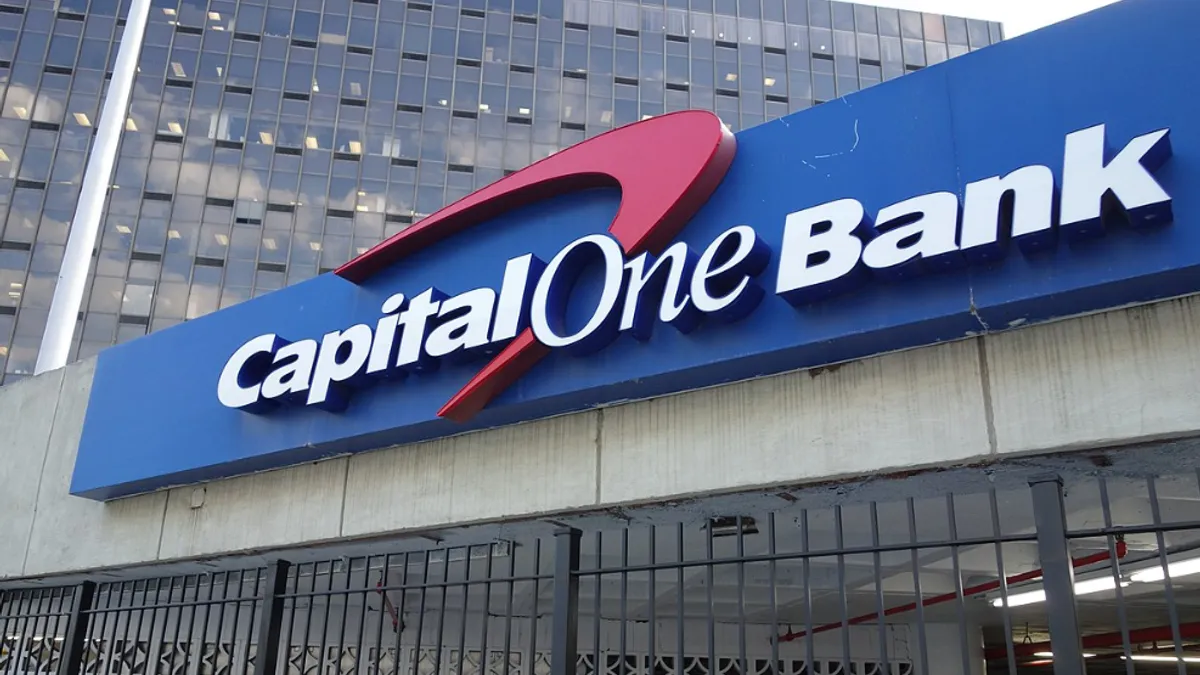Dive Brief:
- Capital One plans to buy TripleTree, a Minneapolis-based healthcare investment bank, the companies announced Thursday.
- Under the terms of the deal, the two businesses comprising TripleTree will become two separate organizations, the companies said. TripleTree will join the Capital Markets group of Capital One Commercial Bank as a wholly owned subsidiary, operating under the current TripleTree brand, and will maintain its offices in Minneapolis and New York. TripleTree’s sister company, TTCP Management Services, will continue as an independent company.
- Capital One’s commercial bank already serves over 40 healthcare subsectors, the bank said. The deal is expected to close in the fourth quarter of 2021 and is subject to closing conditions. Financial details were not disclosed.
Dive Insight:
"Now more than ever, it’s essential to provide our clients with best-in-class solutions, products and services. Capital One and TripleTree together are well-positioned to help our healthcare clients navigate the ever-changing external landscape at every stage of their business," Darren Alcus, head of Capital One’s corporate bank, said in a statement. "As our two organizations join forces, we have the opportunity to expand our market presence, deepen our industry relationships and work collaboratively to identify and pursue new business opportunities to serve our clients’ needs."
Justin Roth, TripleTree’s head of investment banking, will continue to lead the firm.
Capital One’s latest acquisition puts the $423 billion-asset bank in the company of several other lenders that have made recent moves into the healthcare space.
KeyBank launched a digital bank for doctors in March, the result of its 2019 purchase of digital student loan refinancing platform Laurel Road.
The bank said the move is part of its effort to expand KeyBank’s presence nationally through serving the niche market.
"Our goal is to, for the first time, extend KeyBank’s consumer bank beyond our footprint," Jamie Warder, executive vice president and head of digital banking at the Cleveland-based bank, told Banking Dive in March.
The bank plans to add checking and retail investments to the platform, as well as expand banking services to pharmacists, physician assistants, nurses and therapists.
Fifth Third Bank, another regional lender, has also made a play in the healthcare space.
The Cincinnati-based bank announced in June plans to purchase Provide, a digital platform for healthcare practices, for an undisclosed amount.
Fifth Third said the deal, which closed in August, positions the bank to address the complex lending and banking needs of retail healthcare providers.
Banks are interested in the healthcare space because of its low risk avenue and constant growth, said Brian Geary, president of Linear Financial Technologies, which provides banks with digital account origination technology for small-business loans.
"We are seeing many banks employ a specialization strategy by industry, including healthcare. Healthcare in particular is a growing segment with a positive future, and I think we will see more of these moves," he said. "Healthcare is always in demand and banks are looking to make more holistic offerings to medical professionals. Banks are utilizing these vertical specific strategies more and more, as they double down in the healthcare space."
Because of healthcare’s large and often complicated area of expenditure for the average American, delivering financial services is a natural expansion point, said Charley Ma, general manager of fraud prevention fintech Alloy.
"The amount of parties involved in a healthcare payment, as well as the need to work across a wide variety systems, not to mention regulatory hurdles, adds unique complexity to the problem set that financial institutions are often best equipped to handle,” he said.
The nation’s largest bank, JPMorgan Chase, is also flexing its investments in healthcare with a program geared toward its own employees.
The New York City-based bank launched Morgan Health in May, a healthcare venture aimed to innovate employer-sponsored healthcare for the bank's massive employee base and eventually for all 150 million Americans receiving coverage through their job.











